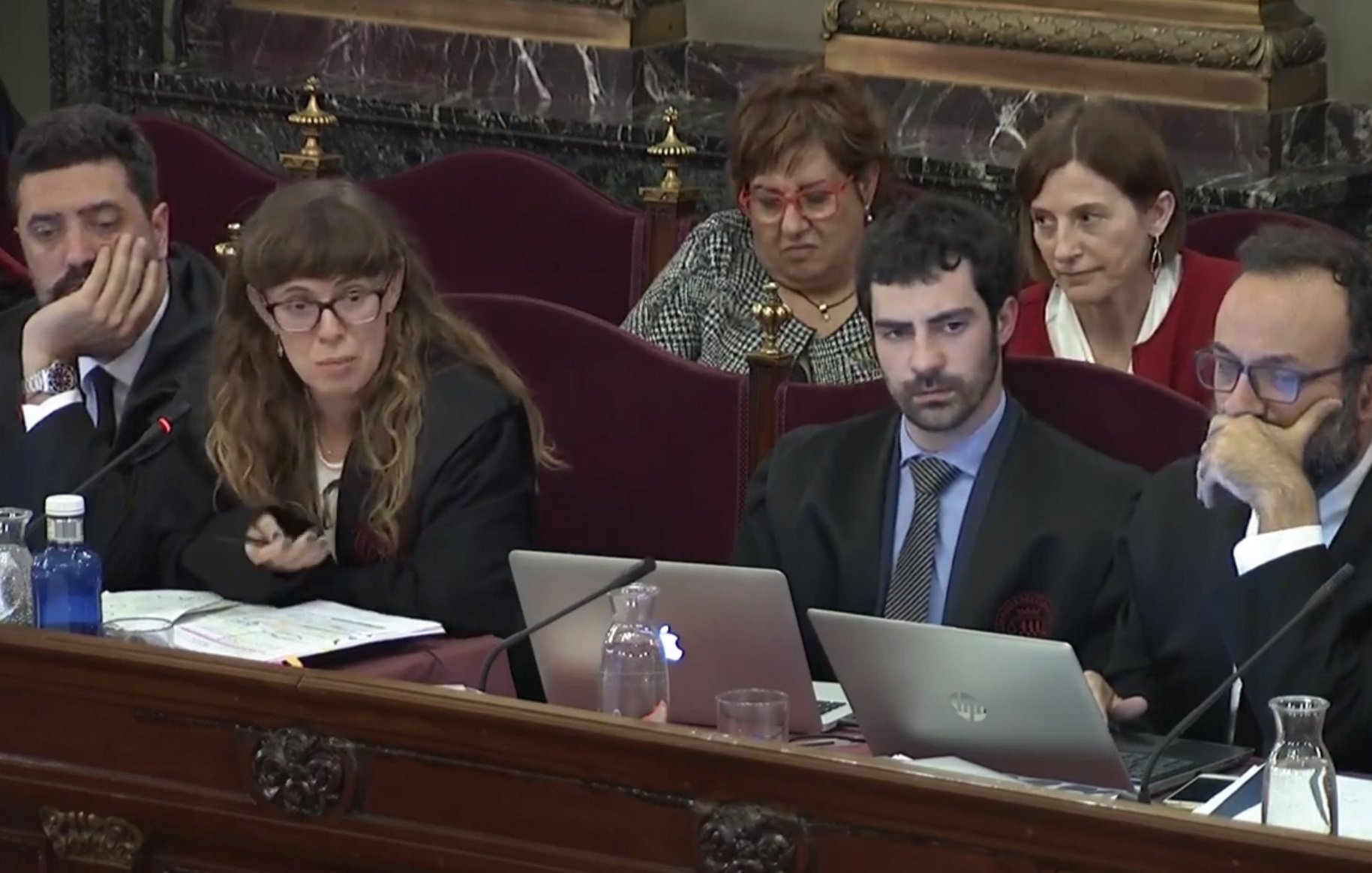The testimony of the Spanish secretary for security, José Antonio Nieto, was today's focus in the Catalan independence trial, bringing with him the narrative of violence to the Supreme Court more strongly than ever. At four hours, it was the longest witness appearance yet.
He repeatedly admitted the police used force during the referendum, but said it was to comply with their legal orders. He also said that police charges are technically only when police are trying to end a protest or clear a space and that, as such, none of their actions on the 1st October 2017 fell into that category. Instead, he said they were following procedure that they must react to any threat of any officers being isolated or surrounded.
He blamed the Mossos (Catalan police), Catalan interior minister Quim Forn, president Carles Puigdemont and the Committees for Defence of the Republic, inflexible on insisting that the Spanish police's actions that day were correct and that there was violence on the part of the public. He went as far as to say there wasn't peaceful resistence from voters at any time.
The only one to put him against the ropes was Forn's lawyer, Xavier Melero, who drew him to contradict himself. Nieto said that judge Mercedes Armas made their work more difficult when she limited prosecutors' order and asked them to protect social harmony without an order to close polling stations, contravening prosecutors.
Technical afternoon
The afternoon was for testimony relevant to former Parliament speaker Carme Forcadell. Her successor, Roger Torrent, appeared, as did two other senior officials and opposition politicians who had also been on the Parliament's governing board. It was confirmed that there was no vote on the declaration of independence, that the board accepted it to move ahead with the necessary steps and nothing that was voted on was published officially, so none of it entered into effect.
Torrent didn't hold much back in his criticism. He criticised the fact that the pretrial detention of the defendants had prevented them from taking their seats in the Parliament and that there was a private prosecution in the case brought by far-right party Vox. He said that "in the dock, thousands of us Catalans should be sitting, and myself first".
"There was a member of the Parliament's board who commented they would only vote on the active part and that it would have no legal effects", said Xavier Muro, the Parliament's secretary general. Like Antoni Bayona, the Parliament's former head lawyer, he said that despite warnings, the law was voted on, but they didn't pass the preamble, which contained the declaration of independence, nor were the laws then published, which would have brought them into effect.
Bayona noted, however, that reports from the chamber's lawyers "are not binding, we're advisors". He also said that the rules are up for interpretation and "we can give more than one option and it's normal for the board to choose".

